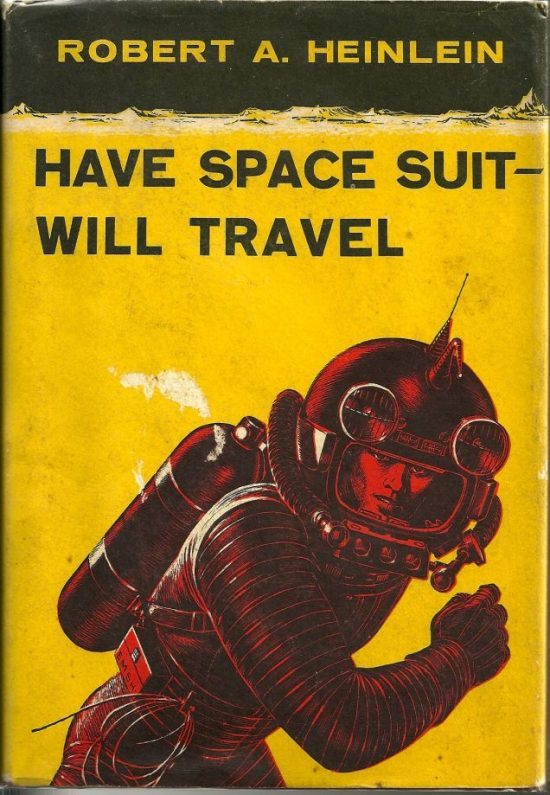 In his 1947 essay “On the Writing of Speculative Fiction,” Heinlein refers to these “two types” of science fiction as “the gadget story and the human interest story.” The latter kind of story, writes Heinlein “stands a better chance with the slicks than a gadget story does” because it has wider appeal. This advice sounds rather utilitarian, doesn’t it? What about passion, inspiration, the muse? Eh, you don’t have time for those things. If you want to be successful like Robert Heinlein, you’ve got to write stories, lots of ‘em, stories people want to publish and pay for, stories people want to read.
In his 1947 essay “On the Writing of Speculative Fiction,” Heinlein refers to these “two types” of science fiction as “the gadget story and the human interest story.” The latter kind of story, writes Heinlein “stands a better chance with the slicks than a gadget story does” because it has wider appeal. This advice sounds rather utilitarian, doesn’t it? What about passion, inspiration, the muse? Eh, you don’t have time for those things. If you want to be successful like Robert Heinlein, you’ve got to write stories, lots of ‘em, stories people want to publish and pay for, stories people want to read.Heinlein spends the bulk of his essay advising us on how to write such stories, with a proviso, in an epigram from Rudyard Kipling, that “there are nine-and-sixty ways / Of constructing tribal lays / And every single one of them is right.” After, however, describing in detail how he writes a “human interest” science fiction story, Heinlein then gets down to business. He assumes that we can type, know the right formats or can learn them, and can spell, punctuate, and use grammar as our “wood-carpenter’s sharp tools.” These prerequisites met, all we really need to write speculative fiction are the five rules below:
1. You must write.
2. You must finish what you start.
3. You must refrain from rewriting except to editorial order.
4. You must put it on the market.
5. You must keep it on the market until sold.
You might think Heinlein has lapsed into the language of the realtor, not the writer, but he is deadly serious about these rules, which “are amazingly hard to follow—which is why there are so few professional writers and so many aspirants.” Anyone who has tried to write and publish fiction knows this to be true. But what did Heinlein mean in giving us such an austere list? For one thing, as he notes many times, there are perhaps as many ways to write sci-fi stories as there are people to write them. What Heinlein aims to give us are the keys to becoming professional writers, not theorists of writing, lovers of writing, dabblers and dilettantes of writing.
Award-winning science fiction writer Robert J. Sawyer has interpreted Heinlein’s rules with commentary of his own, and added a sixth: “Start Working on Something Else.” Good advice.
Read more

No comments:
Post a Comment